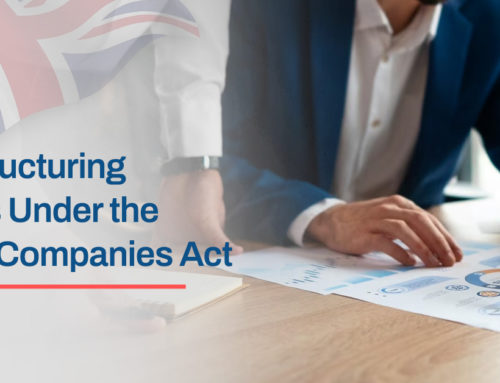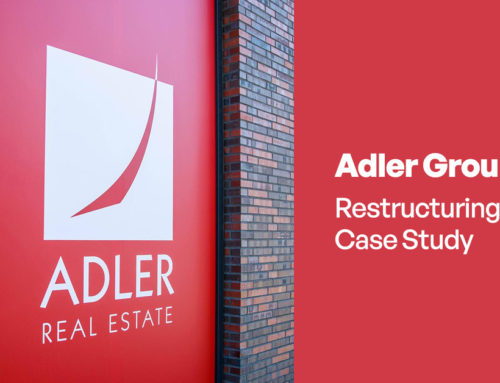A common question by directors and business owners after a limited company has been liquidated is, can they start again? It is possible for directors of an insolvent limited company to start a new business after liquidation, particularly if the new business is going to be trading under a different name or trade. However, if the intention is to use a similar name or trade to the liquidated company, there are several restrictions and legalities that need to be considered.
If the limited company was solvent at the time of liquidation, particularly if the reason was for a merger or significant restructure, starting a new business is a fairly simple process and few restrictions will apply. The new legal company will take over the assets of the liquidated company, which have usually been purchased from the liquidator at market value, and continue trading.
However, if the limited company was insolvent at the time of liquidation, and it was a limited liability business, the directors were protected from any personal liabilities of the company’s debts at the time of the liquidation process. Therefore, it is possible to start a new business after liquidation – but there are limits.
Limits to starting again after company liquidation
Whilst it is possible to start a new business having been a director of a liquidated limited company, the legal insolvency process stops any director that was a part of a company twelve months before it was liquidated from starting certain activities. Under Section 216 of the Insolvency Act 1986, directors of a liquidated insolvent limited company have to comply with restrictions regarding using the same or similar name, or trade or style, to the liquidated company.
Post-liquidation and for a five-year period, that person is not allowed to:
- Become a director of any business that is trading under a similar name, or in a similar trade
- Form, manage or promote a company that has a similar registered or trading name
Not abiding by these rules is known as ‘passing off’ and will result in a fine, and could lead to a prison sentence. The legislation ensures that any liquidated limited company directors are not able to go down the same route again. However, there are some exceptions to the insolvency legislation.
- If a new company buys the liquidated company, as a whole or in part, a similar name can be used but all stakeholders in the liquidated company must be informed
- It is possible to apply to the court to use a trading or registered name that is similar to the liquidated company
- Sometimes, if a company was trading using a ‘prohibited’ name during the twelve months prior to the liquidation process starting, it is possible for the new company to use that name
Another aspect to consider is how the liquidated company’s creditors, as well as former directors and employees, will feel about the setting up of a new company. In addition, if this isn’t the first time being a director of a liquidated insolvent company, HMRC may insist on that person paying a VAT or PAYE deposit in order to protect themselves.
HMRC has the power to demand these deposits under paragraph 4(2)(a) of Schedule 11 to the VAT Act 1994. It is likely that HMRC will require the security deposits if:
- The director(s) of the newly formed company have been involved with several failed companies in the past
- The director(s) have not previously complied with tax legislation
- The director(s) have a history of not paying their taxes in a timely manner
Reusing the company name
If a company was wound up due to compulsory liquidation, it is not possible to use a similar or same name, or trade, for the new company for up to five years. However, there are exceptions to this ruling. If a former insolvent director wants to re-use a name, or trade, under rule 4.228 of the Insolvency Act 1986, notice must be given as follows:
- Make a submission to the official public record, the London Gazette, within 28 days of adopting the name and purchasing the assets of the insolvent company from the liquidator. The notice has to state the director’s name of the new company as well as the new name that is similar or the same to the liquidated company.
- Each and every creditor of the previously insolvent liquidated company must be notified that the specific director is starting a new company using the same or similar name.
In addition to these notices, the director of the previously liquidated company must apply to the court for leave to reuse the name of the company that was insolvent. However, they must meet the following conditions:
- The application for leave must be applied for less than seven days from the date the previous company went into liquidation.
- Leave will be granted by the court no later than six weeks from this date, if leave is to be granted.
- The name of the insolvent company can be used if:
-
- The company has been known by that name for the previous twelve months prior to the company going into liquidation.
-
- The company must not have been in a state of dormancy in the previous twelve months.
Transferring assets to the new company
There are certain guidelines that need to be followed if you are considering transferring a liquidated company’s assets to a new company. Apart from having to negotiate the purchase of the liquidated company’s assets through the insolvency practitioner, the assets must be bought at the fair market trade value.
One other point to note is the issue of potentially struggling to be accepted for credit accounts. Directors of previously insolvent companies that are planning on starting a new business after liquidation may struggle to get credit with previous suppliers due to their poor credit history, and possible resulting bad relationship. If credit is granted, be prepared for the supplier to ask for additional security, payment upfront or much tighter terms with regards to advance payment.
With the exception of dissolving a business, company liquidation is handled by insolvency practitioners. If you are planning on liquidating your company, the first step is to seek professional advice. Our highly experienced professionals at Leading UK are on hand to help and advise on the process. Call us today on 01603 552028 or visit our website at Leading UK for more information.






